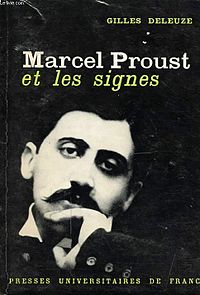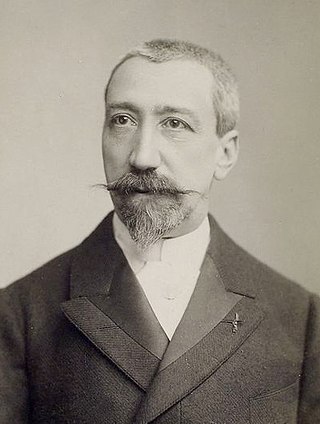
Anatole France was a French poet, journalist, and novelist with several best-sellers. Ironic and skeptical, he was considered in his day the ideal French man of letters. He was a member of the Académie Française, and won the 1921 Nobel Prize in Literature "in recognition of his brilliant literary achievements, characterized as they are by a nobility of style, a profound human sympathy, grace, and a true Gallic temperament".

Pierre-Félix Guattari was a French psychoanalyst, political philosopher, semiotician, social activist, and screenwriter. He co-founded schizoanalysis with Gilles Deleuze, and ecosophy with Arne Næss, and is best known for his literary and philosophical collaborations with Deleuze, most notably Anti-Oedipus (1972) and A Thousand Plateaus (1980), the two volumes of their theoretical work Capitalism and Schizophrenia.

Gilles Louis René Deleuze was a French philosopher who, from the early 1950s until his death in 1995, wrote on philosophy, literature, film, and fine art. His most popular works were the two volumes of Capitalism and Schizophrenia: Anti-Oedipus (1972) and A Thousand Plateaus (1980), both co-written with psychoanalyst Félix Guattari. His metaphysical treatise Difference and Repetition (1968) is considered by many scholars to be his magnum opus.

Valentin Louis Georges Eugène Marcel Proust was a French novelist, literary critic, and essayist who wrote the monumental novel À la recherche du temps perdu which was published in seven volumes between 1913 and 1927. He is considered by critics and writers to be one of the most influential authors of the 20th century.
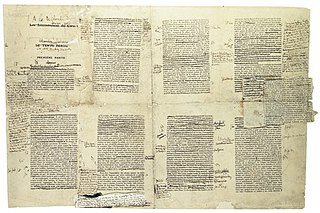
In Search of Lost Time, first translated into English as Remembrance of Things Past, and sometimes referred to in French as La Recherche, is a novel in seven volumes by French author Marcel Proust. This early 20th-century work is his most prominent, known both for its length and its theme of involuntary memory. The most famous example of this is the "episode of the madeleine", which occurs early in the first volume.
Schizoanalysis is a set of theories and techniques developed by philosopher Gilles Deleuze and psychoanalyst Félix Guattari, first expounded in their book Anti-Oedipus (1972) and continued in their follow-up work, A Thousand Plateaus (1980).
Richard Joseph Howard, adopted as Richard Joseph Orwitz, was an American poet, literary critic, essayist, teacher, and translator. He was born in Cleveland, Ohio, and was a graduate of Columbia University, where he studied under Mark Van Doren, and where he was an emeritus professor. He lived in New York City.
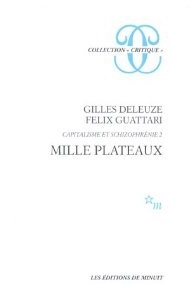
A Thousand Plateaus: Capitalism and Schizophrenia is a 1980 book by the French philosopher Gilles Deleuze and the French psychoanalyst Félix Guattari. It is the second and final volume of their collaborative work Capitalism and Schizophrenia. While the first volume, Anti-Oedipus (1972), was a critique of contemporary uses of psychoanalysis and Marxism, A Thousand Plateaus was developed as an experimental work of philosophy covering a far wider range of topics, serving as a "positive exercise" in what Deleuze and Guattari refer to as rhizomatic thought.

Paul Morand was a French author whose short stories and novellas were lauded for their style, wit and descriptive power. His most productive literary period was the interwar period of the 1920s and 1930s. He was much admired by the upper echelons of society and the artistic avant-garde who made him a cult favorite. He has been categorized as an early Modernist and Imagist.
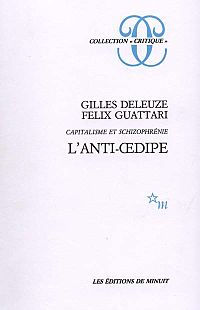
Anti-Oedipus: Capitalism and Schizophrenia is a 1972 book by French authors Gilles Deleuze and Félix Guattari, the former a philosopher and the latter a psychoanalyst. It is the first volume of their collaborative work Capitalism and Schizophrenia, the second being A Thousand Plateaus (1980).
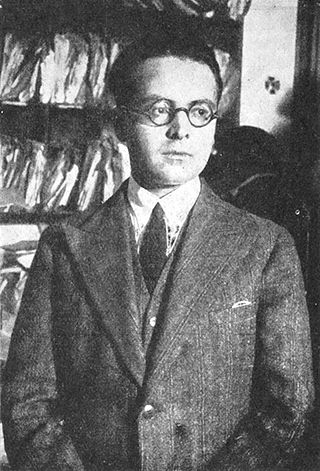
Marcel Arland was a French novelist, literary critic, and journalist.

Cinema 1: The Movement Image (1983) is the first of two books on cinema by the philosopher Gilles Deleuze, the second being Cinema 2: The Time Image (1985). Together Cinema 1 and Cinema 2 have become known as the Cinema books, the two volumes both complementary and interdependent. In these books the author combines philosophy and cinema, explaining in the preface to the French edition of Cinema 1 that "[t]his study is not a history of cinema. It is a taxonomy, an attempt at the classifications of images and signs"; and that the "first volume has to content itself with […] only one part of the classification". To make this division between the movement-image and the time-image Deleuze draws upon the work of the French philosopher Henri Bergson's theory of matter (movement) and mind (time).
Gilles Deleuze, a French philosopher, and Félix Guattari, a French psychoanalyst and political activist, wrote a number of works together.
Éditions Grasset is a French publishing house founded in 1907 by Bernard Grasset (1881–1955). Grasset publishes French and foreign literature, essays, novels and children's books, among others.
Virtuality is a concept with a long history in philosophy, its most notable recent version being that developed by French thinker Gilles Deleuze.

Mauro Carbone is an Italian philosopher. Since 2009, he has been a full professor at the Faculté de Philosophie of the Jean Moulin University Lyon 3 in Lyon, France. From 2012 to 2017, he has been a senior member of the Institut Universitaire de France.

Masochism: Coldness and Cruelty is a 1967 book by the philosopher Gilles Deleuze, originally published in French as Le Froid et le Cruel, in which the author philosophically examines the work of the late 19th-century Austrian novelist Leopold von Sacher-Masoch. In the Foreword Deleuze states that Masoch has a particular way of "desexualising love while at the same time sexualizing the entire history of humanity". Deleuze attempts to "cut through" the various forms of expression and content that are the artistic creation of Leopold von Sacher-Masoch. He also attempts to develop a problematic of masochism in contradistinction to sadism, concluding that the two forms of 'pornology' are non-communicating, and cannot be integrated into Sadomasochistic entity. Deleuze argues that Masochism is something far more subtle and complex than the enjoyment of pain and that Masochism has nothing to do with Sadism.

Francis Bacon: The Logic of Sensation is a 1981 book by philosopher Gilles Deleuze, analyzing the work of twentieth-century British figurative painter Francis Bacon. In this biography, Deleuze discusses aesthetics, objects of perception ('percepts'), and sensation.

Cinema 2: The Time-Image (1985) is the second volume of Gilles Deleuze's work on cinema, the first being Cinema 1: The Movement-Image (1983). Cinema 1 and Cinema 2 have become to be known as the Cinema books, and are complementary and interdependent texts.
Jacques Guérin was a French industrialist. For many years he successfully headed up the D'OrsayParfumerie business after inheriting it in 1936 from his mother, Jeanne Louise Guérin. Beyond the world of commerce Jacques Guérin collected books and manuscripts. One reviewer, paraphrasing the sentiments of several commentators, has described him as "not just a collector but a rescuer of all things Proustian".
